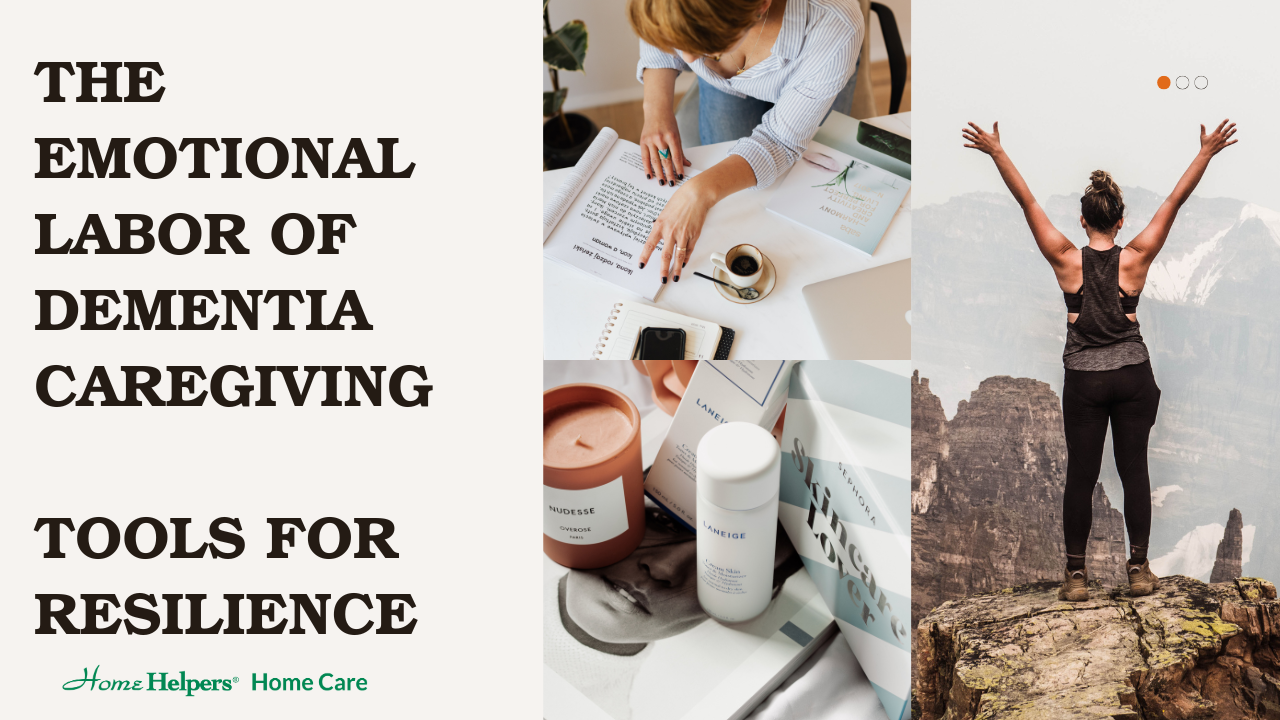The Emotional Labor of Dementia Caregiving: Tools for Resilience in Hagerstown & Frederick

Author: Home Helpers of Hagerstown & Frederick Hagerstown & Frederick
Caring for a loved one with dementia is deeply personal—and profoundly emotional. In Hagerstown and Frederick, where many families care for aging parents or spouses at home, the role of caregiver often brings with it a complex blend of love, grief, stress, and endurance. While the physical demands of caregiving are significant, the emotional labor can be just as challenging—if not more so.
At Home Helpers Home Care of Hagerstown & Frederick, we see firsthand how heavy this emotional weight can become. Here’s what you should know about the emotional toll of dementia caregiving and how to build the resilience you need to carry it with strength and compassion.
Understanding Emotional Labor in Dementia Care
Caregivers don’t just assist with meals and medications. They also navigate:
- The grief of witnessing a loved one’s cognitive decline
- The frustration of repetitive questions or forgotten memories
- The anxiety over safety concerns and future decisions
- The emotional disconnection that comes with personality changes
These emotions are often managed silently. Caregivers frequently suppress their own needs or feelings to keep the peace or avoid upsetting their loved one. Over time, this internal emotional juggling act can lead to burnout, depression, or chronic stress.
Signs You’re Carrying Too Much
Many caregivers don’t recognize the toll until they’re overwhelmed. If you notice any of the following, it may be time to prioritize your emotional well-being:
- Feeling isolated or unsupported
- Becoming easily irritated or withdrawn
- Experiencing disrupted sleep or appetite
- Having difficulty concentrating
- Feeling hopeless, helpless, or resentful
In Hagerstown and Frederick, we’ve met countless families who waited until a breaking point before reaching out. But you don’t have to wait until you’re burned out to ask for support.
Tools for Building Resilience
Here are practical strategies to strengthen your emotional endurance as a caregiver:
1. Acknowledge Your Emotions
- Naming your feelings is the first step to managing them.
- Journaling or talking with a trusted friend or therapist can help.
2. Establish Healthy Boundaries
- You cannot do everything, and you shouldn’t try to.
- Set realistic expectations—for yourself and others.
3. Build a Support Network
- Lean on family, friends, and community groups.
- Join a local or virtual support group for dementia caregivers.
4. Embrace Flexibility
- What worked last month may not work today. That’s okay.
- Be willing to adjust routines, caregiving approaches, and plans.
5. Practice Self-Care Without Guilt
- Exercise, nutrition, rest, and joyful moments are not luxuries—they are lifelines.
- Prioritize them without shame or apology.
6. Celebrate Small Wins
- Focus on the positive: a smile, a moment of connection, a day without agitation.
- These moments matter more than perfection.
When Professional Help Makes the Difference
One of the most empowering decisions a caregiver can make is asking for help. In-home care can:
- Provide respite so you can rest and recharge
- Offer skilled, dementia-trained caregivers who understand your loved one’s needs
- Help you shift from surviving to thriving in your role
Whether you need a few hours of support each week or more structured care, Home Helpers Home Care of Hagerstown & Frederick can step in with the consistency and compassion your family deserves.
How Home Helpers Supports Emotional Resilience
Our team is trained not only in the physical aspects of dementia care but also in the emotional complexities that come with it. We support families by:
- Creating routines that reduce stress and confusion
- Offering companionship and engagement for your loved one
- Providing respite care so you can take time for yourself
- Being a listening ear when the emotional burden feels too heavy
We’re more than caregivers—we’re partners in the journey.
Final Thoughts
Dementia caregiving is an act of love, but it can also be emotionally exhausting. You don’t have to carry the weight alone. In Hagerstown and Frederick, our Home Helpers team is here to support you—with compassion, expertise, and the tools you need to stay resilient.
If you're feeling the emotional weight of caregiving, call us today at 240-452-4650 to schedule a no-obligation care consultation. Let’s navigate this journey together.
Sources
Alzheimer’s Association. (2024). Caregiver Stress. https://www.alz.org/help-support/caregiving/caregiver-health
National Institute on Aging. (2023). Managing Stress as a Caregiver. https://www.nia.nih.gov/health/managing-stress-caregiver
Mayo Clinic. (2023). Alzheimer’s Caregiver Tips. https://www.mayoclinic.org/healthy-lifestyle/caregivers/in-depth/caregiver-tips/art-20046787
